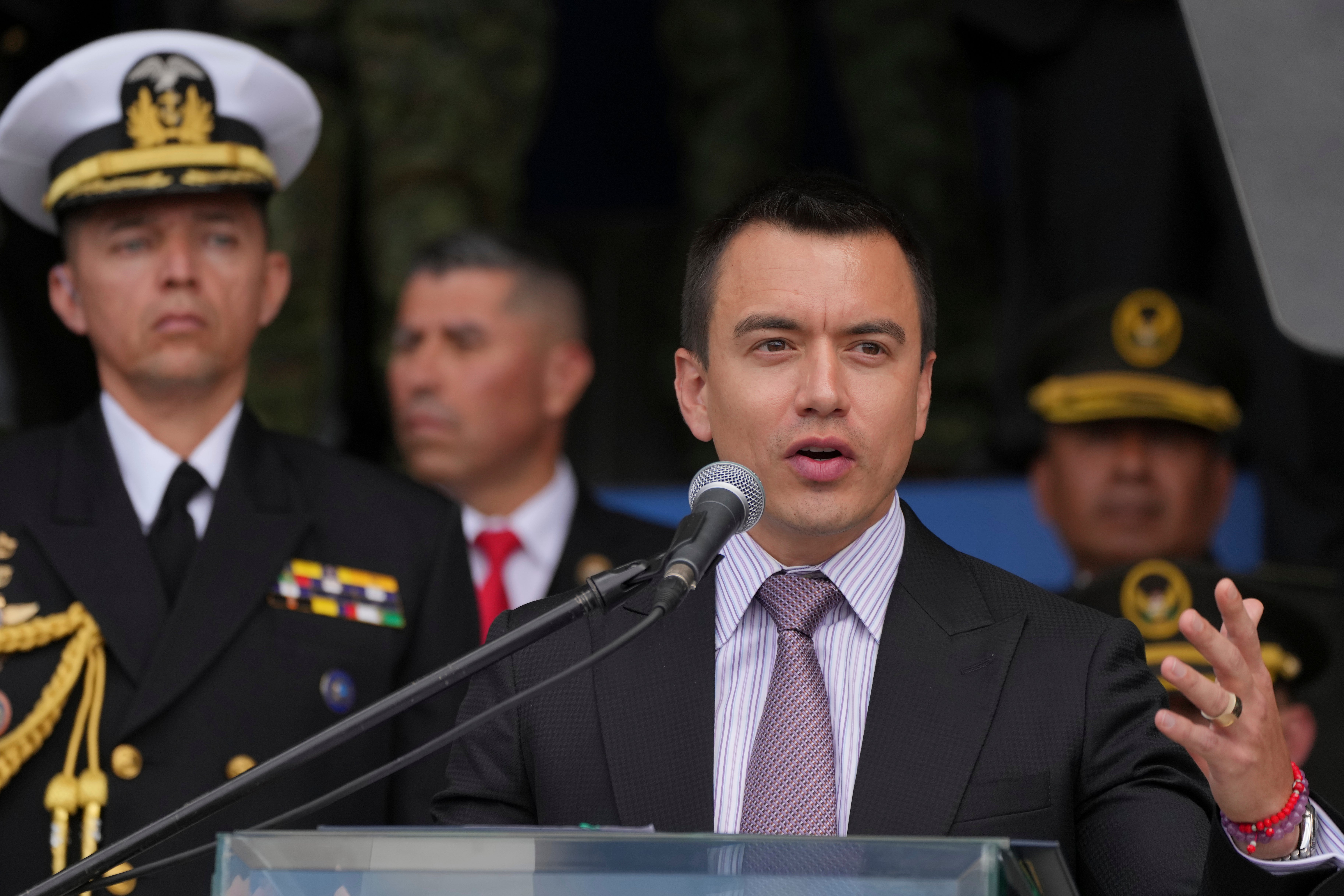Diplomatic tensions between Ecuador and Russia over military equipment threaten banana exports
A diplomatic rift between Ecuador and Russia appeared to intensify over the weekend after the European nation decided to ban some imports of bananas from Ecuador
Your support helps us to tell the story
From reproductive rights to climate change to Big Tech, The Independent is on the ground when the story is developing. Whether it's investigating the financials of Elon Musk's pro-Trump PAC or producing our latest documentary, 'The A Word', which shines a light on the American women fighting for reproductive rights, we know how important it is to parse out the facts from the messaging.
At such a critical moment in US history, we need reporters on the ground. Your donation allows us to keep sending journalists to speak to both sides of the story.
The Independent is trusted by Americans across the entire political spectrum. And unlike many other quality news outlets, we choose not to lock Americans out of our reporting and analysis with paywalls. We believe quality journalism should be available to everyone, paid for by those who can afford it.
Your support makes all the difference.A diplomatic rift between Ecuador and Russia appeared to intensify over the weekend after the European nation decided to ban some imports of bananas from Ecuador.
The two countries have been at loggerheads recently after Ecuador decided to transfer some of its old Russian military equipment to the United States, in exchange for $200 million in new military gear.
On Saturday, Russia’s federal agency for veterinary and phytosanitary controls announced it was banning imports from five Ecuadorian banana companies, claiming that a disease had been found in previous shipments of their fruits.

Ecuador is the world’s leading banana exporter, with sales worth around $3.5 billion in 2022. Around a fifth of its annual sales goes to Russia.
Russia’s decision to ban some banana imports came after President Daniel Noboa announced in January that Ecuador would transfer several tons of old Russian-made military equipment to the United States.
Noboa said the equipment was no longer usable, and described it as “scrap metal” that would be replaced with new equipment needed to fight the drug gangs which have been terrorizing the country.
Russia’s foreign ministry protested Noboa’s decision, saying that it violated a contract which stipulated that Ecuador could not sell the equipment to third parties without Russia’s consent.
Carlos Estarellas a former Ecuadorian vice minister for foreign affairs said that Russia’s decision to ban some banana imports could be in retaliation for the decision to send the old military equipement to the U.S.
“One would hope that this impasse can be solved through diplomatic talks,” Estarellas said.
Richard Salazar, the director of ACORBANEC, one of Ecuador’s main associations of banana exporters, said that he was “surprised” by Russia’s “drastic” decision, though he added that at least 15 companies continue to export bananas to Russia.
“It’s a very important market for us,” he said, “and a market that would be difficult to replace.”
Salazar said his association hadn’t been officially notified of the ban, but was seeking a meeting with authorities in Russia to address the problem and try to get the ban overturned.
